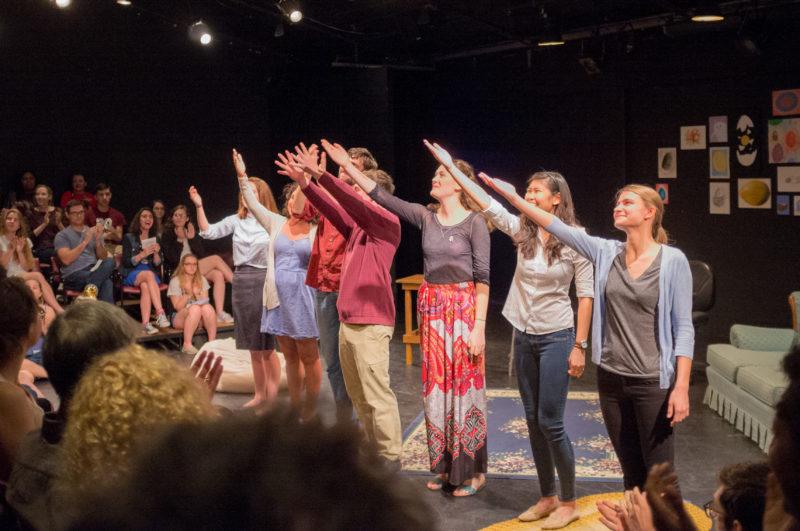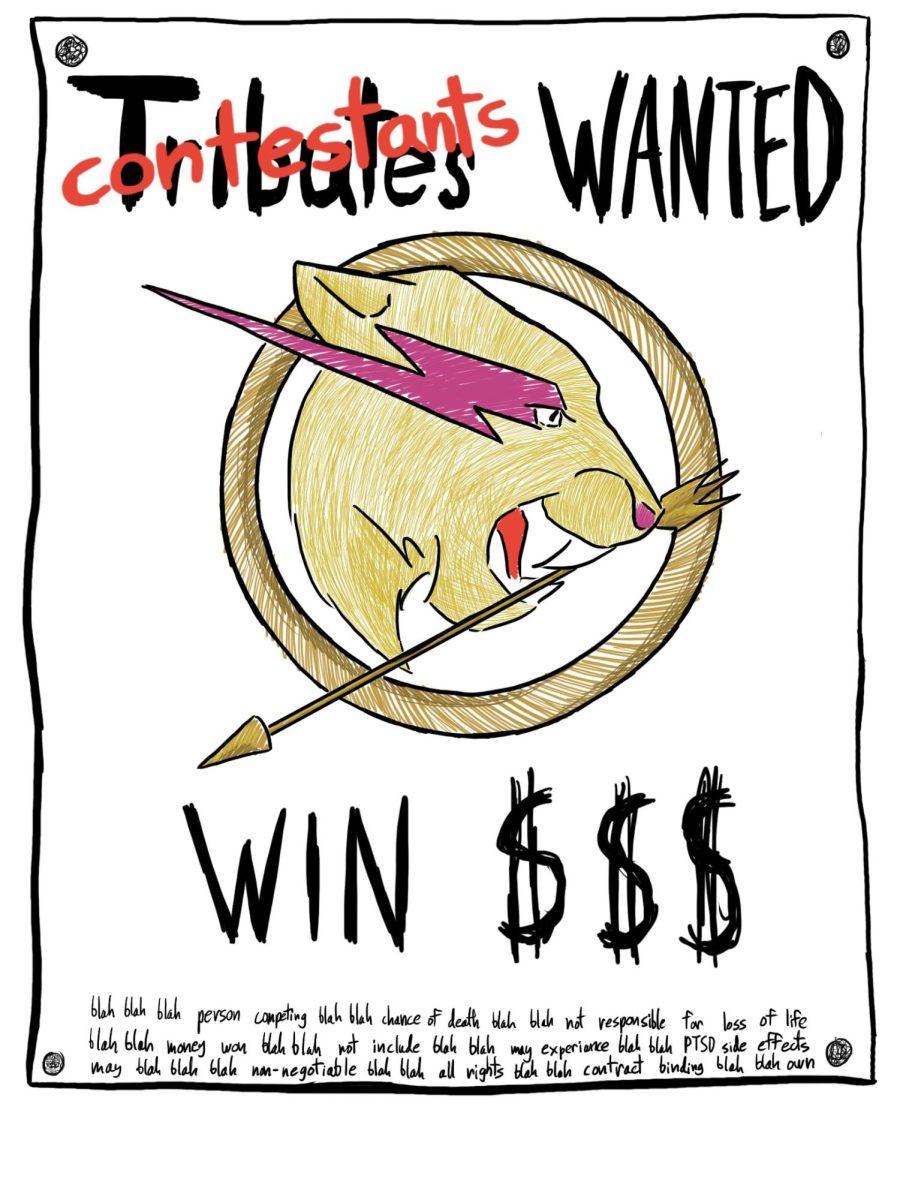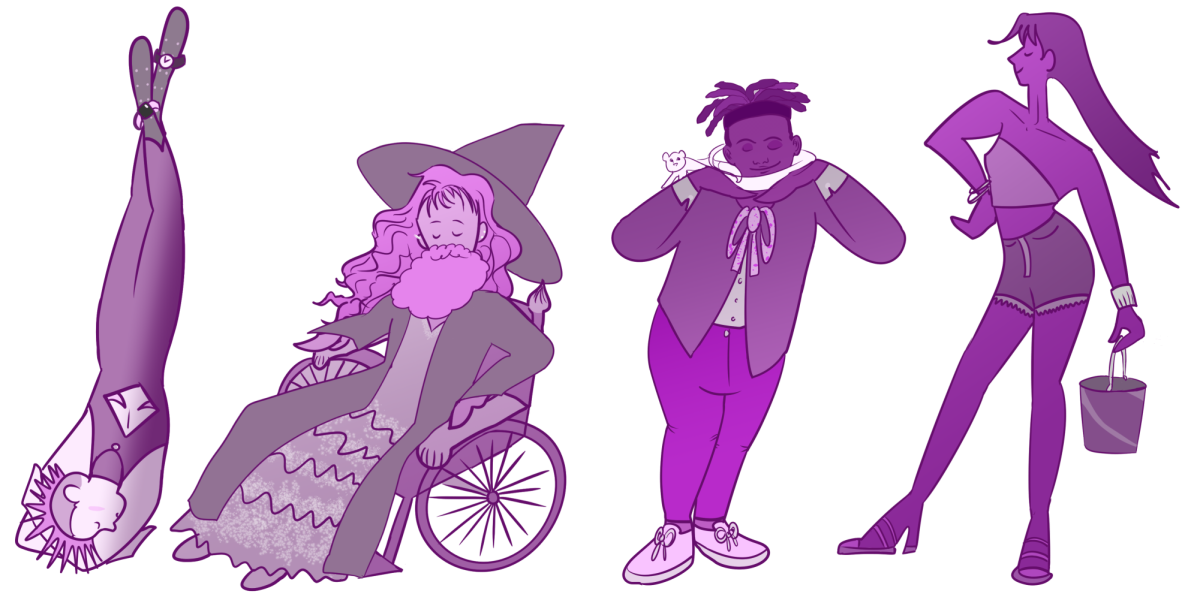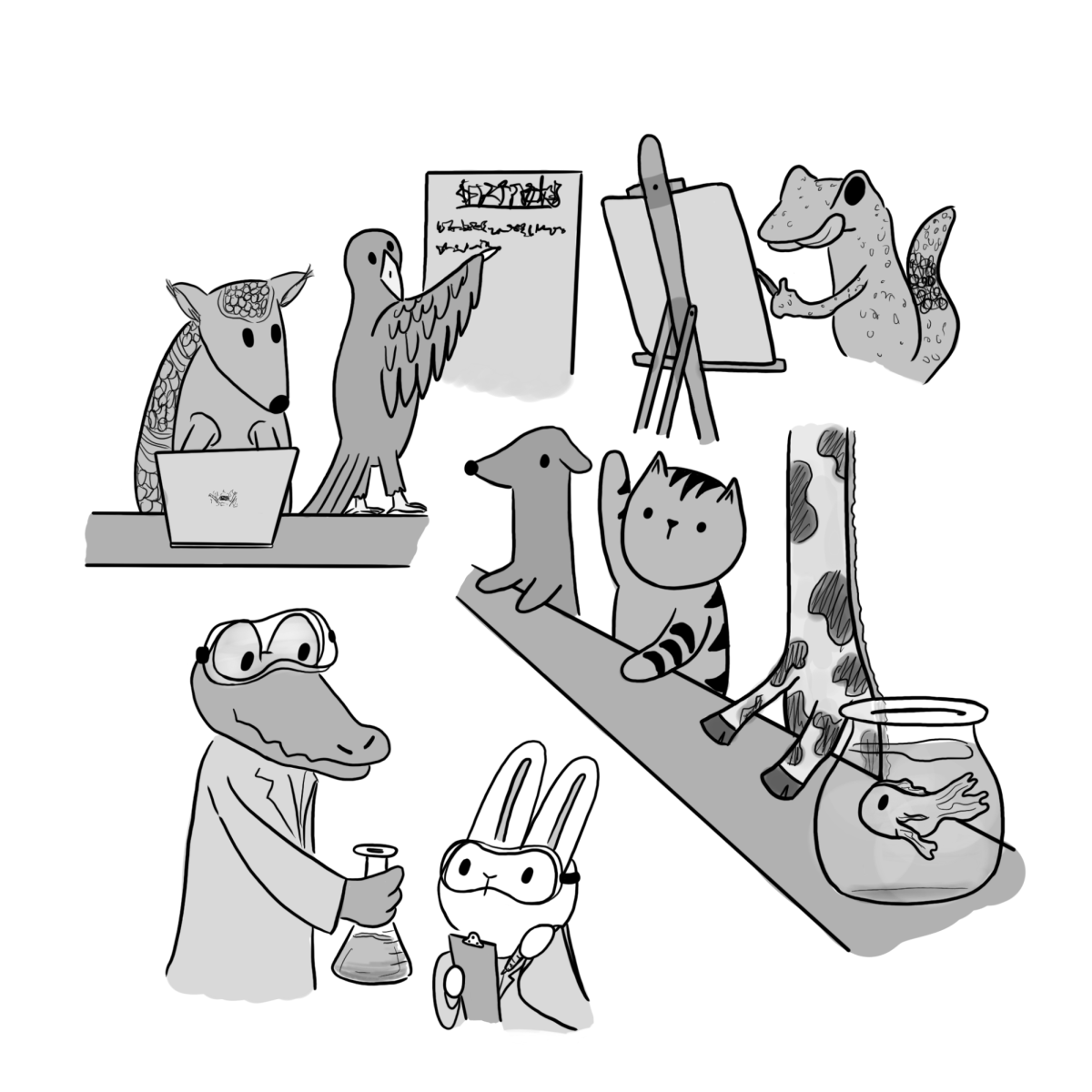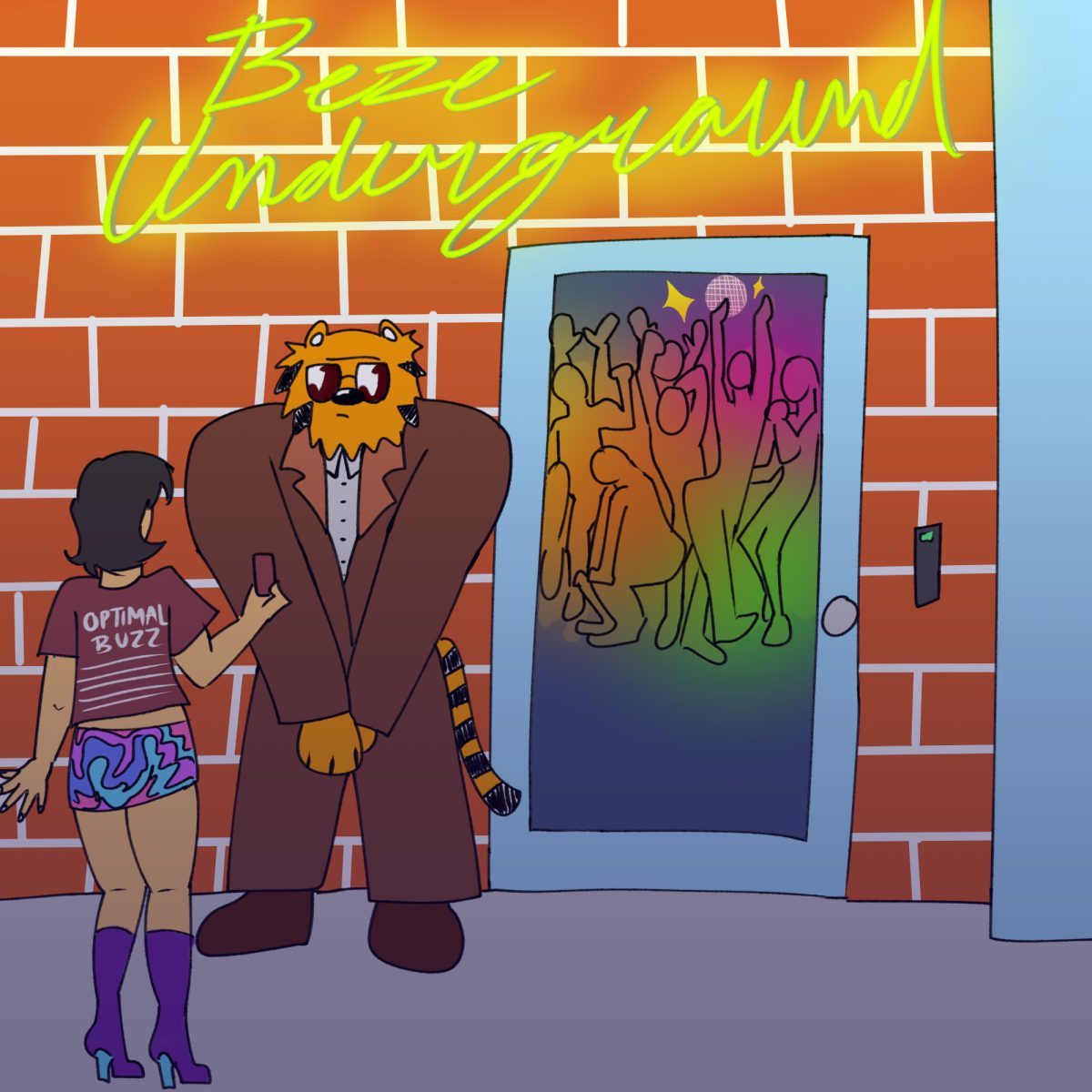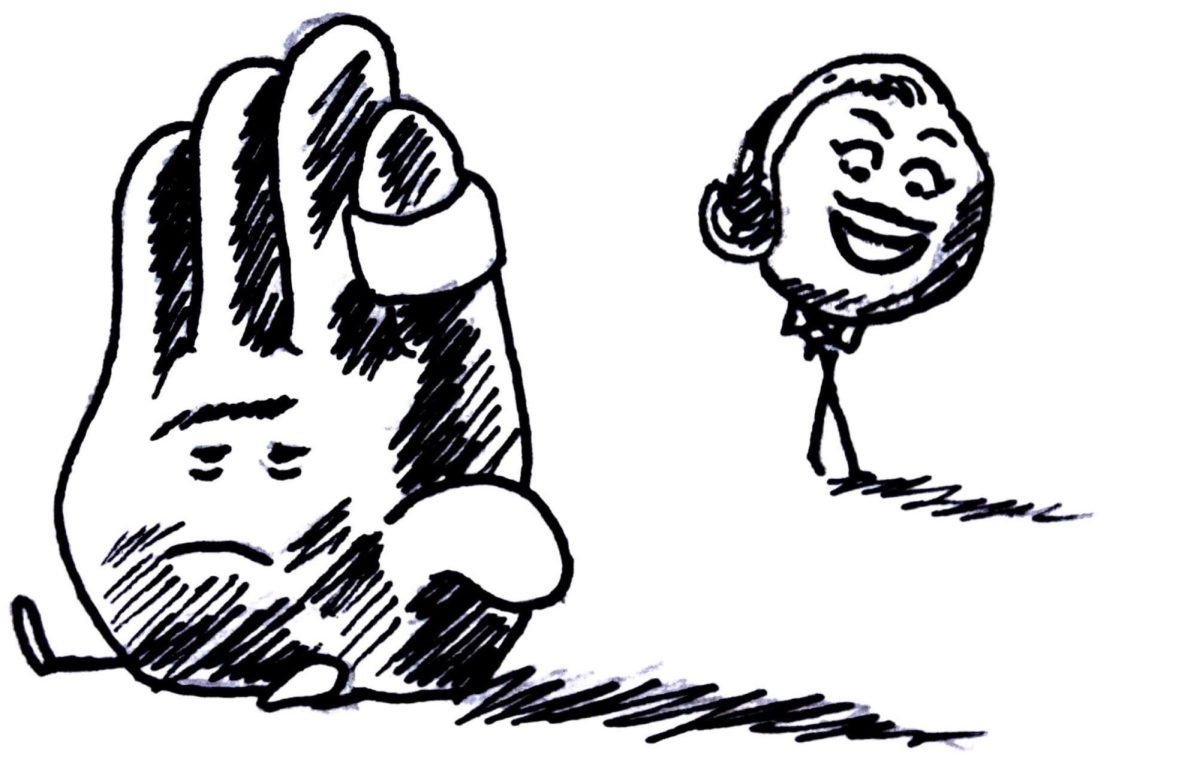It’s no easy task for students to write, produce, direct and act out a theatre production, but the folks behind “Cult” rose to the challenge and stuck the landing.
Written by Holly Gabelmann and directed by Nico Champion, both junior theatre majors, the play packed the Attic Theatre two nights in a now. When the seats all filled, audience members resorted to sitting on the floor and in the aisles to catch the very first showing of the one-act play on Oct. 13.
“Cult” follows two young anthropology students named Faith and Liz as they interact with a small gathering of individuals led and taught by a charismatic leader named Will. Faith and Liz first come to study the group’s self-described ‘gatherings’ for anthropological research, but eventually find themselves a part of it.
The gathering meditates on the idea of the world existing as a literal egg, laid by a Universe Bird, containing a universe chick within. The group believes that humanity, a parasite on the egg, will eventually be brought to an abrupt end by the chick’s hatching. Eggs decorate the walls of the gathering space. The gathering abstains from the consumption of eggs, as they each contain other universes.
There are few members of the gathering, but each is fairly well-developed and relatable. Chris is a young atheist who had a promising career in physics until his fiancee broke off their engagement and his mother developed a severe illness. Because of these tragedies, he became disenchanted with the world of academia and joined the group.
Ingrid is a free-spirited art school dropout who nearly lost her life to anxiety and depression. The gathering saved her from suicide and encouraged her to paint again. Al and Yvonne are professional women who met and married thanks to the gathering. They are demonstrably affectionate people who speak of long years spent searching for human connection before meeting the other members of the group. Will is the warm and collected teacher of the gathering.
Connection is a recurring theme within the gathering. It is emphasized that the Universe Bird is not a religion but a school of thought. The gathering is focused on fellowship and mutual support. Liz and Chris begin to date but, despite her feelings, Liz breaks the relationship off because of the sudden wild success of her research project. Faith gets swept up in her own strong familial feelings for the gathering and joins their ranks, compromising the research project and ending her friendship with Liz.
Chris becomes a loose cannon after the breakup and the death of his mother. He commits suicide by bringing an explosive into a local post office in an attempt to forcibly hatch the universe chick, killing four innocent people in the process. Will panics and admits that he fabricated the Universe Bird as a personal social project. The group fights and ultimately disbands, with their friendships shattered and scattered to the winds.
The surrounding community is shell-shocked and labels the gathering a fanatical and delusional religious cult full of nothing but murderous rage for the outside world. They only know the bomb, not the troubled person behind it or the group that was once a home to troubled people like him. The group members are now ostracized by their community and it’s keenly tragic, as they felt so displaced and disenfranchised beforehand.
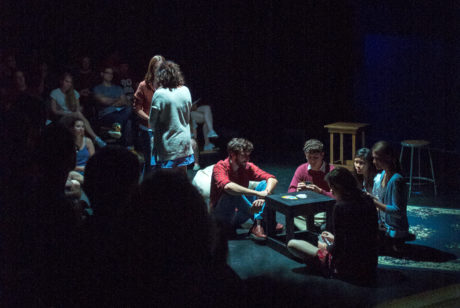
Overall, the story is ambitious. The play attempted to tell a massive story in a short amount of time, making the narrative fast and relentless without time to explore some of the deeper emotional traumas mentioned, such as Chris and Liz’s breakup and Faith’s personal background; it’s tacked on at the very end that she’s ignored an ill father to spend time with the group.
The characters are fundamentally believable but the dialogue tended to favor light-heartedness over reality. Depression, mental illness and suicide are mentioned but tiptoed around in non-explicit terms in order to get to the next scene. A dedicated lesbian couple goes through a gut-wrenching breakup and abruptly end their marriage over Chris’s suicide, and another character immediately offers one of the women ice cream in lieu of comfort or verbal support.
“Cult” lacks nuance in its one hour crunch of a time frame, but ultimately tells a very engaging and detailed story about human connection, media sensationalism and religion. This is a passion project brought to life by students from start to finish and an impressive product by the Trinity theatre department.

